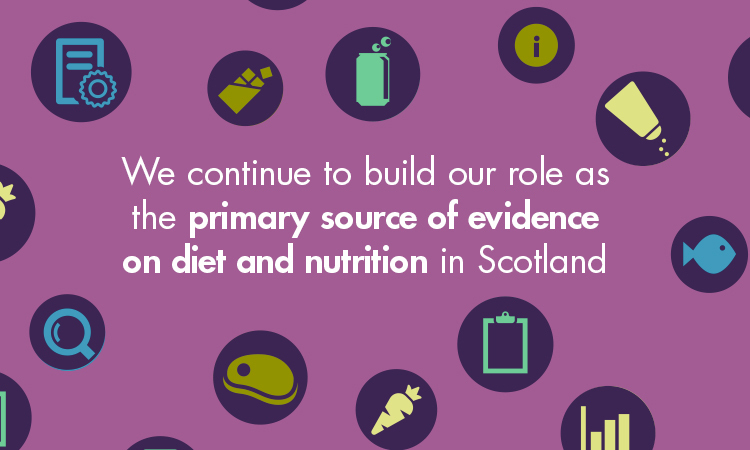What's on this page:
We have commissioned a number of evidence reviews, dietary modelling exercises and briefing papers, building on our role as the primary source of evidence on diet and nutrition in Scotland.
The impact of consuming less meat and dairy
To understand the impact of achieving recommendations for meat and dairy reduction made by the Climate Change Committee, Food Standards Scotland commissioned research from the University of Edinburgh. The research uses data on dietary intakes collected in adults, as part of the Scottish Health Survey (SHeS) in 2021.
Methods to assess the price of healthy diets
Price and the ability to afford food are major deciding factors when we choose what to eat. To improve the Scottish diet, we need to understand how much a healthy diet costs and how this cost is calculated. This report is a rapid literature review produced for Food Standards Scotland by the University of Aberdeen. It explores the methods used to estimate the price of diets and focusses on those used in high income countries.
Evidence on discretionary foods
This paper provides an evidence base for policy actions to reduce current intakes of discretionary foods including confectionery, sweet biscuits, savoury snacks, cakes, pastries, puddings and sugar-containing soft drinks. These foods are typically high in fat, sugar or salt, and provide little or no nutritional benefit necessary for a healthy diet.
Modelling the cost of diet and diet-related health in Scotland
A review of the evidence base for modelling the costs of overweight, obesity and diet-related illness for Scotland, and critical appraisal of the cost-effectiveness evidence base for population-wide interventions to reduce overweight, obesity and diet-related illness.

Folic acid
Dietary modelling was conducted to find out the most effective way of adding folic acid to flour for the purpose of reducing Neural Tube Defects (NTDs). The modelling used current dietary information to explore the effect of different options for adding folic acid to flour while taking account of folic acid from fortified foods such as breakfast cereals and fat spreads, and from dietary supplements.
Transforming the food environment
We commissioned research to provide evidence on the food and drink environment. This includes an assessment of the current evidence of how food and drink retailing currently works in Scotland and identifies factors that could enable healthier purchasing by consumers.
Older reports on the food and drink environment: